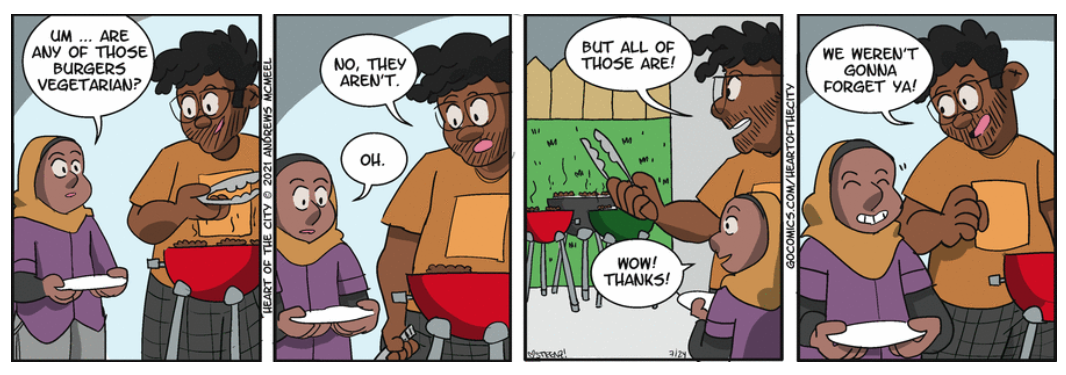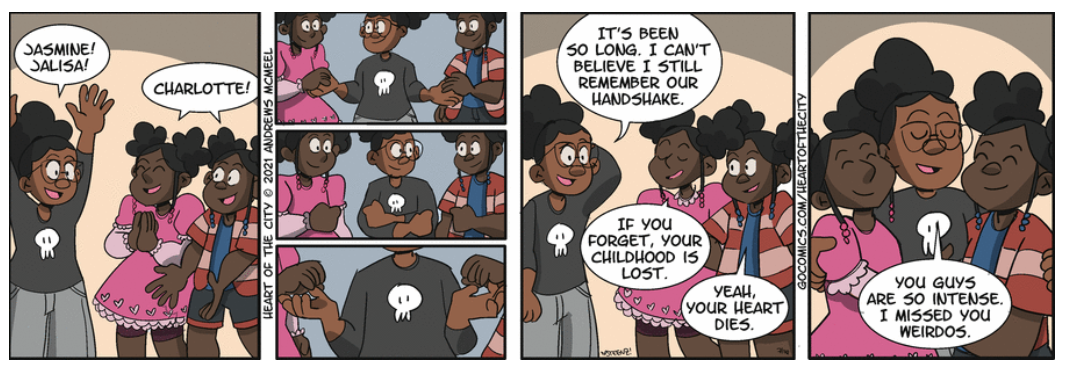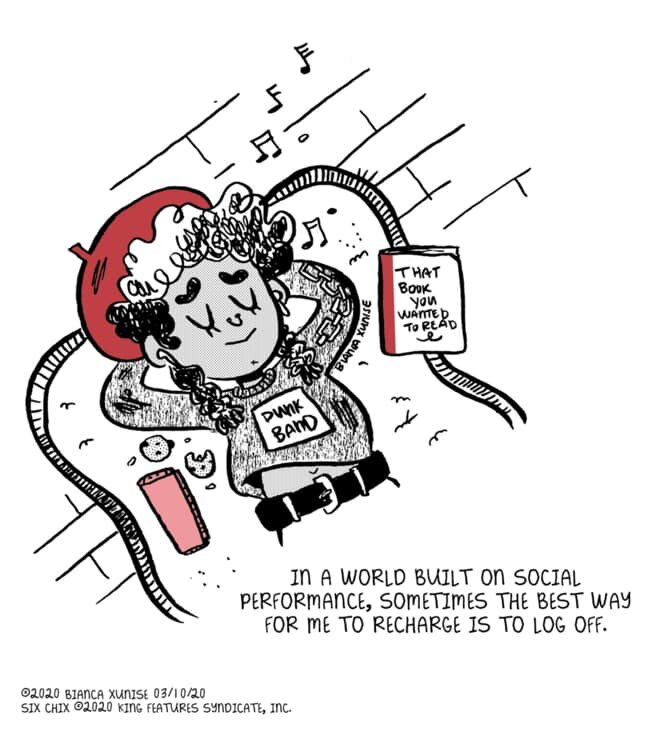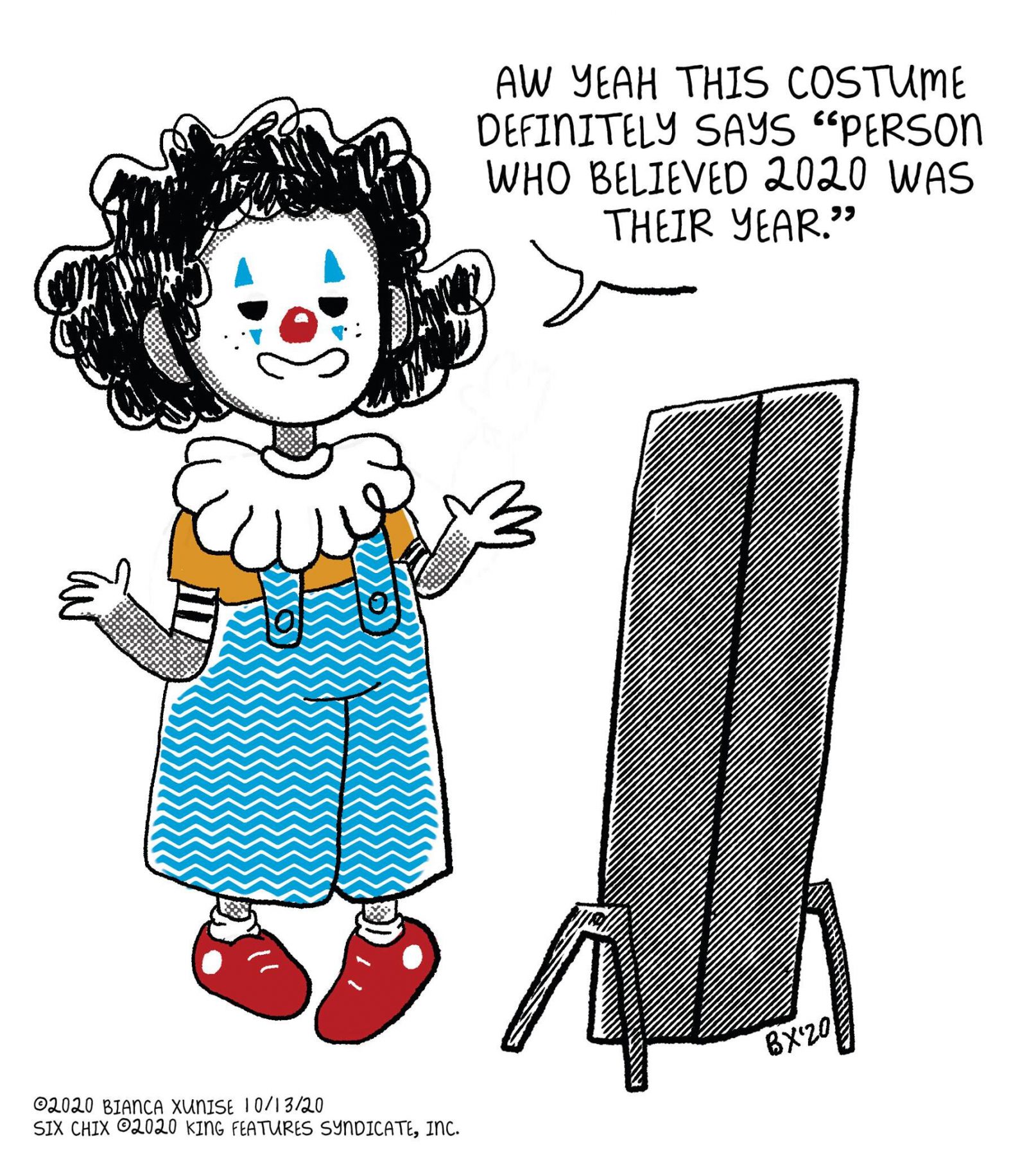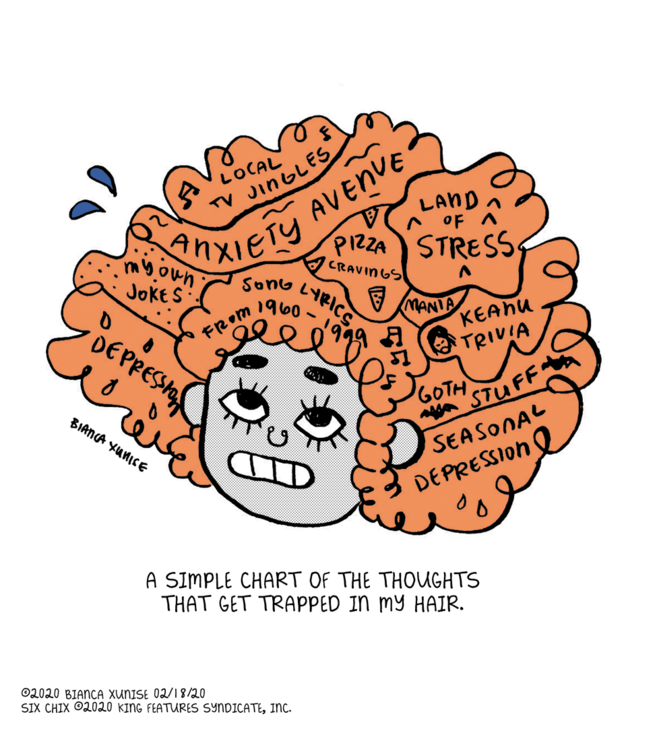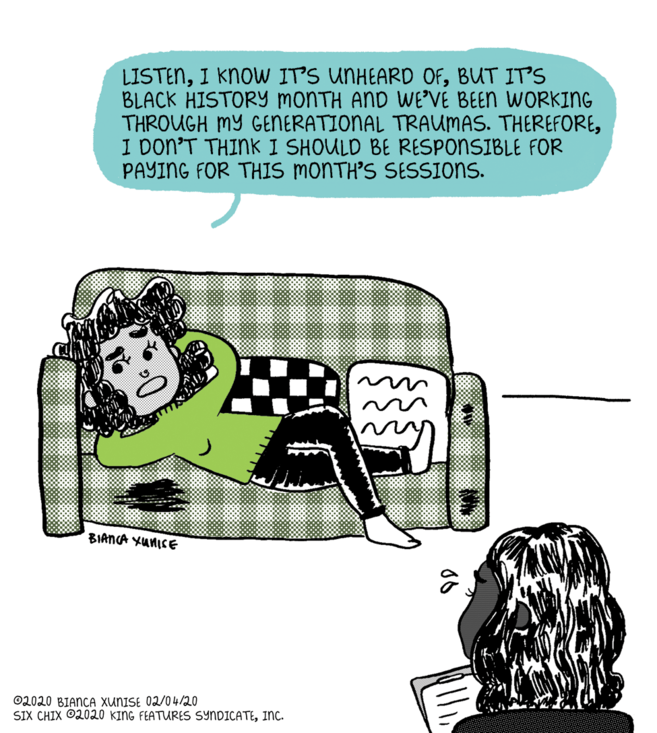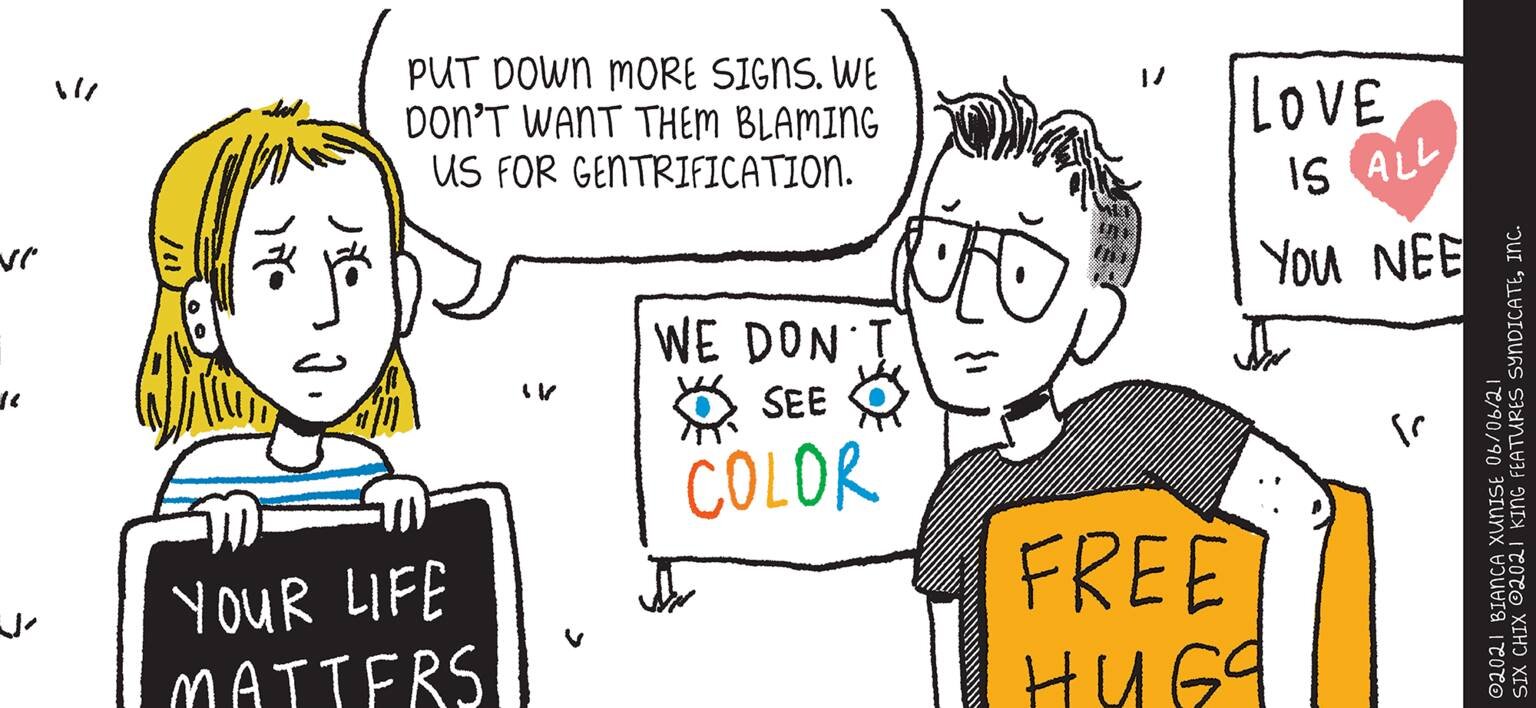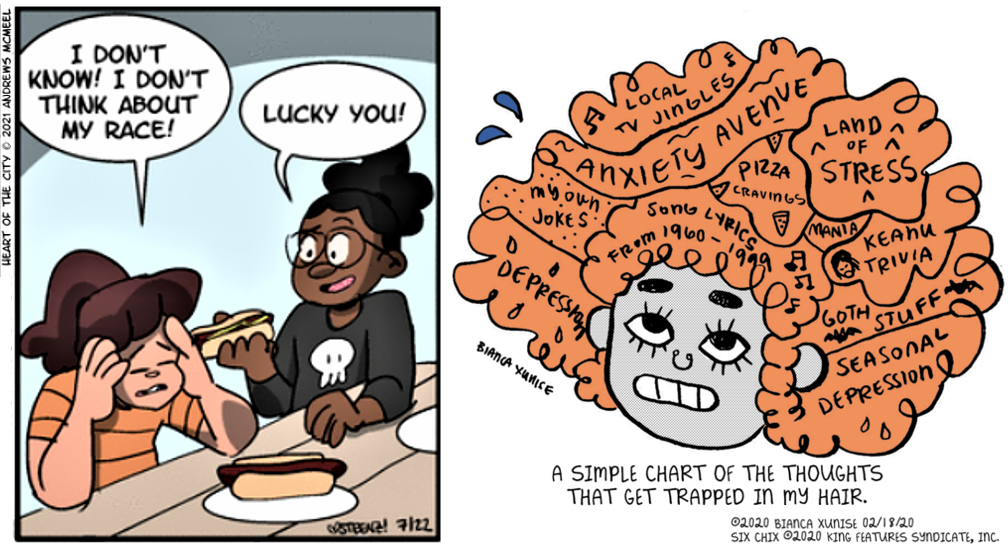
For many children, their introduction to newspapers comes through the comics page, reading syndicated strips like “Garfield,” “Peanuts,” “Calvin and Hobbes” and “The Far Side.”
Cartoons have long been dominated by white men, but the media niche is slowly inching toward diversity. Last year, Bianca Xunise and Steenz, who both identify as nonbinary, became the second and third Black femmes — and the first in recent decades — to draw nationally syndicated comic strips.
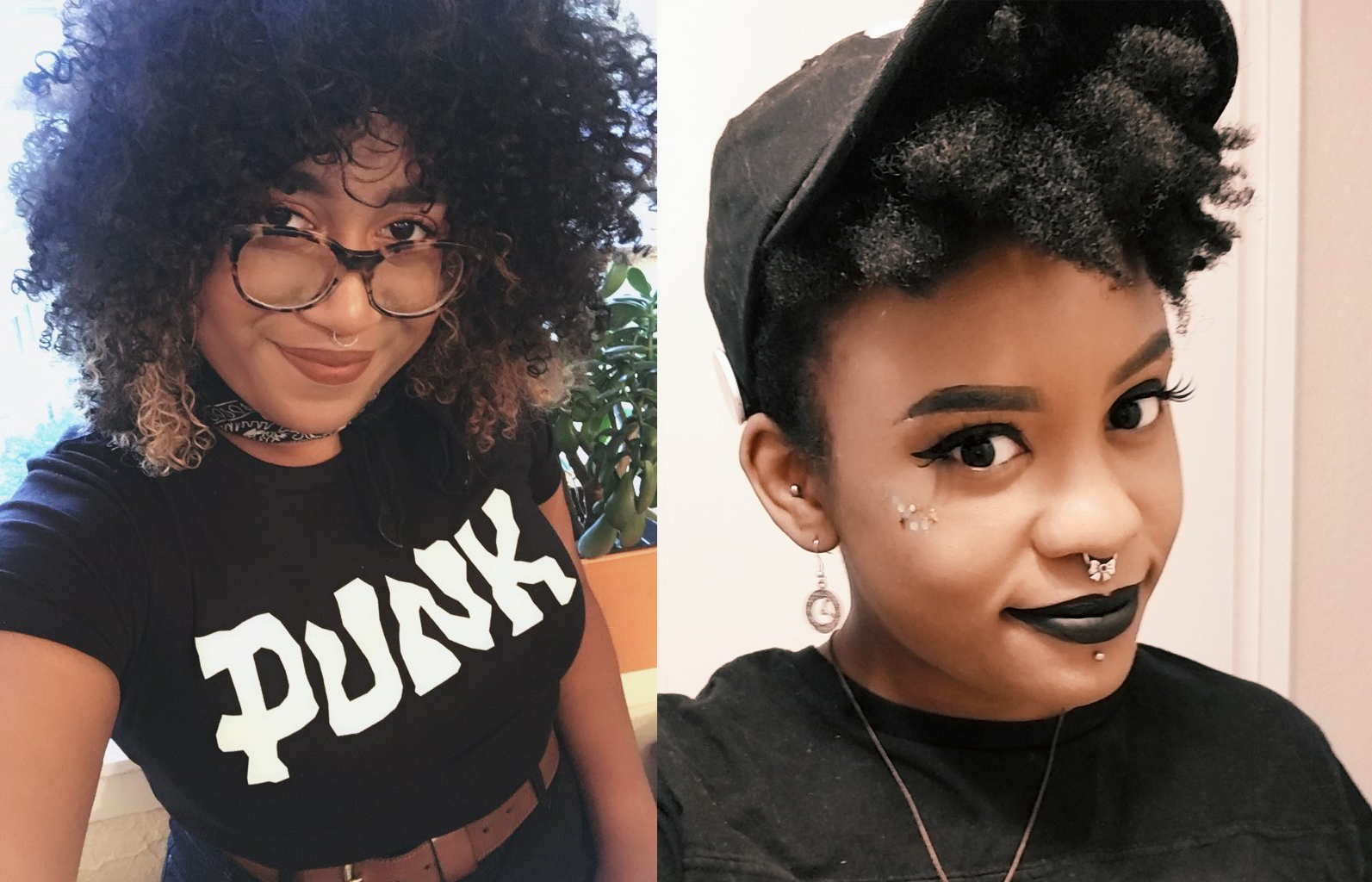
Xunise, a contributor to the syndicated strip “Six Chix,” which is shared by six artists and published by King Features Syndicate, has gained attention for autobiographical cartoons on topics ranging from racism and mental health to goth fashion and punk music. Their graphic novel, “Punk Rock Karaoke,” will be published in summer 2023.
Steenz, meanwhile, first came to prominence with their 2018 graphic novel, “Archival Quality,” in addition to webcomics and zines, such as Encyclopedia Brown remade with a Black femme protagonist. Later, Andrews McMeel Syndication approached Steenz to take over the long-running comic strip “Heart of the City,” which centers on a young girl named Heart, after its creator, Mark Tatulli, retired. In Steenz’s version, she’s a middle school student with a diverse set of friends and classmates. Steenz is currently working on a compilation book of their “Heart in the City” comic strips, to be published in spring 2022.
NBCU Academy spoke to Xunise and Steez about making it in the industry, diverse storytelling and creating space for others in the field. The interview has been edited for length and clarity.
GALLERY: “Heart of the City” cartoons appear courtesy of Steenz and Andrews McMeel Syndication.
NBCU Academy: What was it like becoming syndicated comic strip artists?
Steenz: It was very stressful at the very beginning. That’s a lot on someone’s shoulders, to be one of three Black femme people making syndicated comics, ever, in the history of comic strips. I was sweating at my computer, like, “Oh my god, I’m supposed to be representative of an entire ethnic group.” But I did have the opportunity to talk to Bianca Xunise and Barbara Brandon-Croft [who became the first nationally syndicated Black female cartoonist in 1991] about how scary it is. Also, we’re all in it together. I remember for my launch, I got emails from the [African American] creators of “Jump Start” and “Curtis,” that were like, “Welcome to the family.” That alone made all of my insecurities and stress completely vanish. I grew up reading their comics. To have them embrace me so quickly was really, really lovely.
Bianca Xunise: I’ll be honest, sometimes I do doubt myself. I definitely thought [a comic strip] is something I would do later in my life, and then I’m like, oh wait, this is a good time to start doing something like this on my journey. Some say I’m not prepared enough or seasoned enough or have enough Instagram followers or Twitter followers to be a credible artist. But what makes me a credible artist is that I make art. I think that’s what makes anybody a credible artist.
GALLERY: “Six Chix” cartoons appear courtesy of Bianca Xunise and King Features Syndicate.
Are your comic strips autobiographical?
Xunise: At this point, [my “Six Chix” character] “little Bianca” has kind of become like “Cathy.” Sometimes they’re true, sometimes they’re fictional, sometimes they’re wacky scenarios I decided to put myself into. It will range from stories about me, stories about my moms and then just random political things.
Steenz: Pretty much everything in my life culminates into these characters. Brent, one of my favorite characters, is that annoying, weird kid who really is into anime. There’s always that super weedy Black kid in every class, wearing one of those flame polyester button-downs, and all he wants to do is talk about who can beat Goku. This archetype exists everywhere, everyone has met this person, and yet I don’t see it anywhere in media. I could not name a single character that acts like that. So I was like, I’m bringing that in.
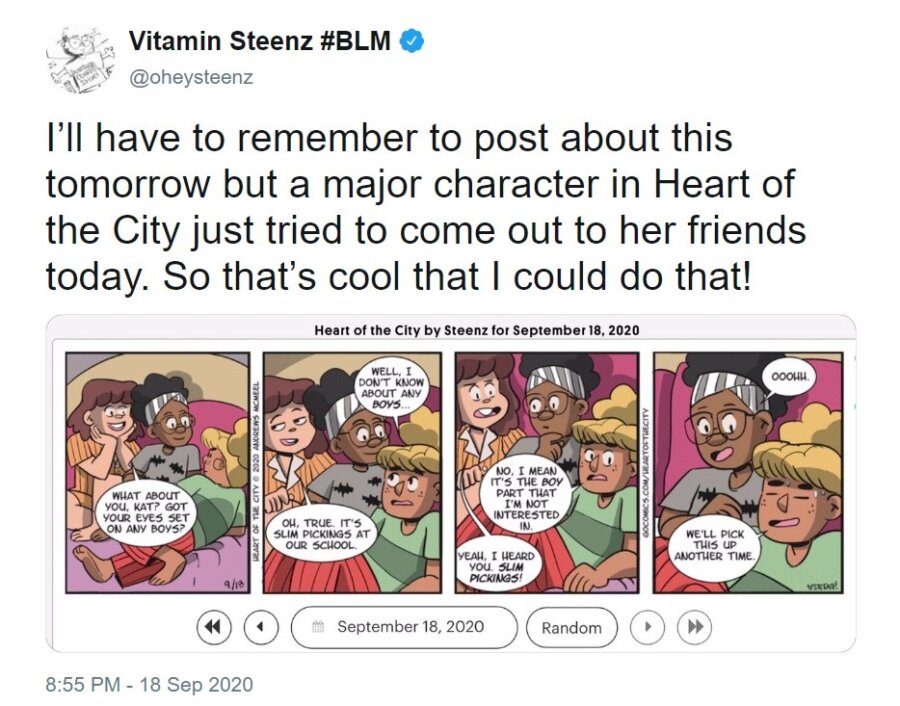
Steenz, your comic strip has characters rarely seen in any other comic, like Lee, a Black girl who wears hijab, Charlotte, a Black girl with two moms, and Kat, a biracial girl.
Steenz: When I first got the gig, Bianca Xunise was the only person to ever ask me what it’s like writing a main character that’s white. And I was like, I don’t know. The assumption is that it will be easier for me to write someone who was Black, because I’m Black. I definitely had that thought, of “What am I doing here?” If I’m going to be the one to create these characters, and figure out the landscape of this universe, I want to make sure that what I’m doing isn’t unrealistic.
A recent storyline has Heart literally getting “invited to the cookout,” making that Black Twitter phrase a reality. What inspired the barbecue storyline?
Steenz: I like that’s what’s in the zeitgeist — if you’re “hangable,” if you were “invited to the cookout.” But also, white people just don’t think about being white. Heart, the main character, can be used to mirror the experiences around her. She’s not the one with two moms, but she gets to understand how to interact with someone with two moms. She’s not mixed race, she’s not a person of color, but she can ask questions and be crazy and still do things right, and also still make mistakes as well.
And I don’t like reading about stories where trauma happens, you know? There’s a reason Covid is not happening in my comic, because I don’t want to deal with it. I don’t want to write about Charlotte getting “hate crimed.” I would rather write about Heart realizing “Oh, yeah, I’m the odd one out here.” There are ways to talk about tough and complex issues, without making it exploitative, in a way that’s light-hearted but real.
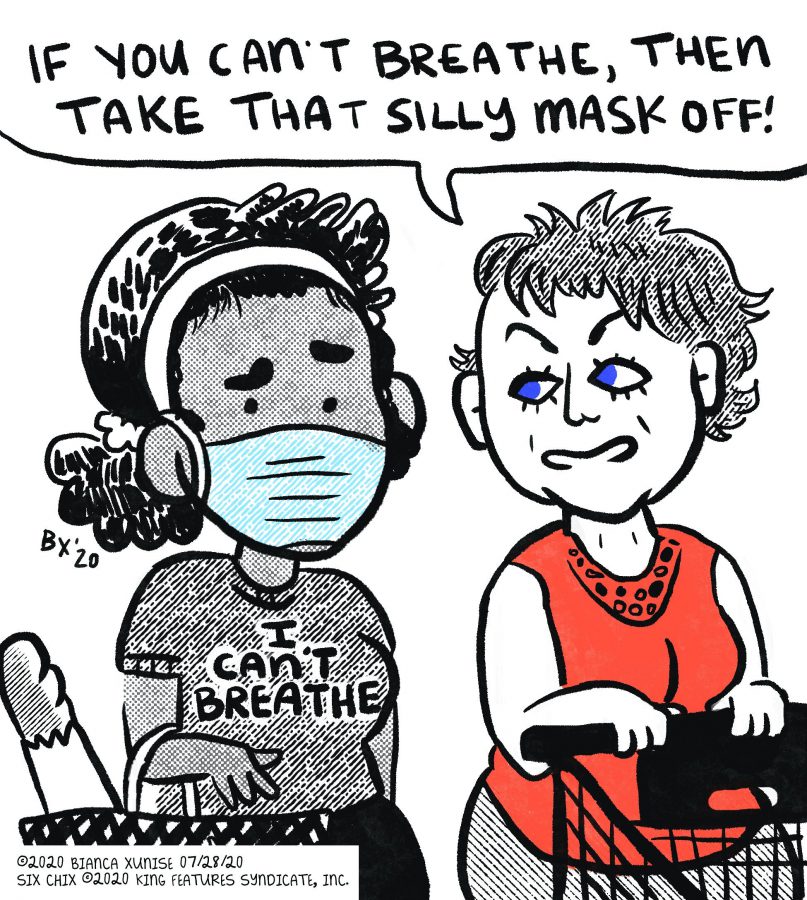
Bianca, your “I Can’t Breathe” cartoon for “Six Chix” made national headlines in 2020. How do you look back on that experience?
Xunise: This is going to be something that will probably follow me and be this tent pole in my career. I knew with an analog medium like newspaper comics, it was going into people’s homes and they couldn’t just turn their computer off. They had to look at it in their face, physically. I will say it probably took a year to fully process that entire experience. I stopped drawing as much, I started to feel a little insecure about making strong points and I even took some time off on my strip. But it’s also a trial by fire situation where I feel stronger for it.
My first comic that really made a big deal was the “Say Her Name” story that won the Ignatz [Award for Promising New Talent] in 2017, and it was another story about racial violence, racial tension, police fatalities. This one “Six Chix” panel was able to do what that entire comic did. I’m grateful that people connect these strong stories with me.
You both teach cartooning classes. How else do you try to bring others along into the field of cartooning?
Steenz: It’s all about visibility for me. It took me visually seeing another Black female doing the work for me to have my entire life changed. I always say yes to panels, yes to interviews. Because I want to make sure that whoever is looking at the interview sees me. Then maybe kids will end up in a cartooning class saying, “I want to be like Steenz.”
Xunise: My work can be a little safe for everyone, very PG-13. Sso I try to get some people doing Rated R stuff in there. I don’t want another Bianca, we have a Bianca. We need more variety of artists. It’s important to not just have one voice represent an entire community of people, but for the longest time it was just Barbara Brandon-Croft and [“Boondocks” creator] Aaron McGruder and a couple of others. It doesn’t mean there’s less jobs for other people, it just means that there’s more voices, that’s it. Pick the voices you want to listen to, like we’ve always done, and then go on with your life.



